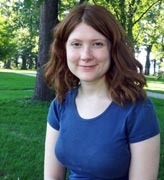Jennifer R. Hubbard's Blog, page 111
November 17, 2010
Knowing what we know
Writing involves several levels of our minds, not all of them conscious. If we immerse ourselves deeply enough in the story, those seeds and those connections often arise organically. Sometimes, that's the way we know we've stumbled upon the right ending or plot twist; we find that the whole book has in fact led to this moment, whether we understood it at the time or not.
Plenty of conscious planning goes into a book, too, of course. And I find I often use a hybrid approach: I'll notice that I've used a certain symbol or image a few times, and it happens to fit with my theme, so I start to play it up consciously during revision.
November 16, 2010
The Writer-Reader Contract
If you prefer Blogspot to LiveJournal, you can now follow my blog here. I've started cross-posting my content. I have no plans to leave LiveJournal; this is just to make life easier for those readers who prefer Blogspot. And you can comment at either place, since I will check and respond to comments at both sites. However, I currently have Anonymous commenting enabled only at LiveJournal.
On Tuesday, November 16, Holly Cupala, C.J. Omololu and I will be sharing secrets on Twitter at 8 PM Eastern (5 PM Pacific), using the hashtag #YAsecrets. We've all written books about secrets, so please join us for a "secret" Twitter chat if you're available then! By the way, my Twitter name is @JennRHubbard.

Now for the writerly talk:
I was thinking today about when I was little and cartoons were my favorite TV shows. Once in a while, a new show would come on that used cartoons in its title sequence, and I would be enraptured, thinking the show was animated. Imagine my disappointment and confusion when the show featured actors, not cartoons. They only used cartoons for the opening song!
I was thinking about this in the writing context because of the writer-reader contract we set up at the start of any piece. If we start out funny, the reader expects us to stay funny. If we set up a mystery, the reader expects it to be solved. A writer who breaks that contract risks the reader thinking that the writer either doesn't know what s/he is doing, or the writer is being needlessly manipulative.
I once asked a person in the publishing field, whose critical eye I greatly respect, how large a sample it took to know that any given writer's work had potential. The answer was: a few sentences. At first that surprised me, and then I realized how often I've found it to be true as a reader. I felt it when reading Heidi R. Kling's book, Sea, and again when reading Alexandra Bracken's Brightly Woven.* In just the first couple of pages, I could tell that these were writers who knew what they were doing, and I trusted they would tell a good story, and they didn't disappoint.
When readers buy into our fictional worlds, we make certain implicit promises to those readers. We owe them something. I think my own writer's vow is: I will make this journey as interesting as I can; I will try to leave you with something true and meaningful; I will follow the rules of my own imaginary country.
*In the interests of full disclosure, I will say these writers are both in the Tenners group with me, and I first read their books as ARCs lent by the authors. However, my opinion of their writing is independent of that fact; I would not compliment them here unless I could do so honestly.
November 15, 2010
Bridget Zinn benefit
This is Bridget Zinn. She's a librarian and YA author who was diagnosed in 2009 with Stage IV colon cancer. Last year, a bunch of generous folks donated and bid on items in an online auction to raise money to help Bridget and Barrett with their medical expenses.
Bridget is still fighting, so this year there will be another auction, “Bridget Kicks Cancer: Season of Love and Hope,” from November 22-December 4.
Please consider donating an item or service by November 19.
Details:
In the spirit of Bridget and Barrett’s Summer of Love, let’s keep it going with an online auction, Bridget Kicks Cancer: Season of Love and Hope. Starting now, we’re asking people to donate items to be bid on. Bidding begins Monday, November 22nd, and ends Saturday, December 4th. Here’s how it works:
Item Donation:
- To donate an item, go to http://bit.ly/bridgetkickscancer to fill out and submit the Item Donation Form.
- If you have more than one item to donate fill out a separate form for each item.
- For each item you submit, send us images to accompany the item listing. We can take up to four images per item! Please email images to: bridgetkickscancer@gmail.com.
- Get your donations in by Friday, November 19!
Items that have been popular and successful in previous auctions include:
- Author and writer services: critiques, help with social networking
- Autographed books
- Handcrafted jewelry or greeting cards
- Local services: wine tours, house rentals, consulting work
- Original Artwork: perhaps design an 8 x 10 -12 x 24 around the theme of “Season of Love” (paying homage to Bridget’s “Summer of Love”), offer to commission a piece of art, or donate an existing piece
- Gift items
The Auction:
- The auction will begin at 8:00am on Monday, November 22nd, and will conclude at 7:00pm Pacific / 9:00pm Central on Saturday, December 4th.
- To bid on items, visit the auction site at http://bit.ly/bridgetauction and follow the instructions for bidding.
- Winners will be notified by Sunday, December 5th, and will be sent instructions for payment at that time.
- As soon as payment is received, donors will ship or otherwise provide the item won to the winning bidder. Since this is around the holidays, send items as soon as possible after we notify you that payment has been received.
Questions? Email us at bridgetkickscancer@gmail.com!
November 13, 2010
Choosing the story
How do we choose whether to tell Cinderella's story (as an example) from her point of view, or the prince's, or a stepsister's? As that point of view shifts, how do the beginning and ending points of the story change? How does the theme change?
One of those stories will have an arc and a theme that resonate with us. That is my story, an inner voice says. That is the story I have to tell. This is what I believe to be true.
There's a point where we shift from imitation--from telling our myths and stories the same way we've received them--to creation. A point where we take hold of a story and shape it according to our own beliefs and experiences. Having learned from others what stories are, we begin to tell our own.
November 11, 2010
Different versions, same story
I have gotten to see some artistic representations of my book, however; in the images used for my book in the Class of 2k10 trailer; in a trailer that one lovely fan of The Secret Year sent me; and on the jacket of the hardcover. I've been lucky that all of these renderings have pleased me; even when the images don't duplicate the exact world that I see in my head, they've always captured the spirit of that world perfectly. And now I have a paperback cover as well:
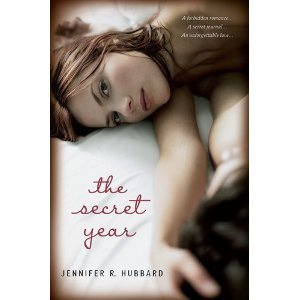
This one captures Julia, the main female character, whom we only saw in a profile snippet on the hardcover. That's Julia, all right; particularly her face and her expression. And once again, I'm bowled over by the talent of cover designers, how they capture the essence of the secret year through which my characters live. Before I saw my covers, I didn't think I would want photos on the cover, because I was afraid they would be too literal. Now I'm in love with photographic covers, and so glad Viking picked the right images with the right models both times.
The paperback is coming out December 23, although it's already up for preorder, if you like preordering. I have new bookmarks for this cover, so if you want any, just shoot me an email at jennifer[at]jenniferhubbard[dot]com.
If you preferred the cover of the hardback:
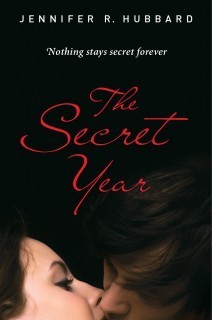
it's still available, "while supplies last!" (Although the hardback won't become extinct in December, hardcovers do tend to get much scarcer when the paperback releases.)
I'm so glad I haven't had to design my own covers. Visual art is a special talent, and I'm happy to play with words and leave the images to the professionals. ;-)
November 10, 2010
Language changes, plus bonus inspiration
The other day on Twitter, I was talking about the change in spelling from “all right” to “alright.” When I was growing up, teachers pounded it into my head that there was no such word as “alright;” it was a heinous misspelling of “all right.”
And now, “alright” has become accepted usage. It’s hard for me to get used to, but the fact is that our language changes. Words fall into and out of fashion; old rules die (You can now end sentences with prepositions!), spelling changes, and new words appear (internet and teh, for examples that didn’t exist when I was born).
Language is something that all of us build, maintain, and develop through an ever-changing consensus. It has its arbiters and authorities, but every day, millions of people adapt it for their own purposes. Sometimes we consult the authorities–say, when we consult a grammar text or a dictionary. And sometimes the authorities consult us, as when new words are added to the dictionary.
It’s exciting to think of books, our current body of literature, as shaping the future, as much as they’ve been shaped by the past.
And for your bonus inspiration, please read this post by David Lubar on "market wisdom," Two quick snippets to tempt you:
" ... while it is fine to give some thought to commercial considerations, I think the single most important part of deciding how to spend the next month, half year, or decade of writing time is to keep company with the idea that excites you so much, you can't imagine not writing about it."
" ... passion is contagious, especially when sprinkled across the printed page."
November 8, 2010
Challenges, part 2
For each of us, when we're seeking our “next level,” the hurdle may be set at a different place, depending upon the experience and talent we bring to the table. I asked some other writers what was the main thing they did to bring their work to the next level, and here are their answers:
Cristin Terrill: Kept writing. The levels just seem to come at their own pace.
T. Anne Adams: Slow down and pay attention to the quality of my writing.
Laura Pauling: Completing a structural breakdown of published novels really helped me with story structure.
D.L. King: What helped me take my writing to the next level was taking a screenwriting class. Studying a different medium really opened my eyes to ways to improve my novel. I learned some great lessons for building the basic structure and for making each chapter more visual.
Suelder: I joined an online writing community - made friends with other writers and took their comments seriously.
Mike Mullin: For craft: Read and annotated Self Editing for Fiction Writers until my original copy had to be replaced. For voice: wrote a first-person manuscript in which the protagonist is pretty much me (as I was as a teen).
The common thread seems to be that we keep working and keep moving forward. We put in the time, and we work up a sweat.
And sometimes we take risks.
My most recent project came to life because I tried to write a verse novel. I wasn’t sure I had the poetic chops to write a verse novel, but it was definitely a stretch—something that excited me, that seemed fun to try. As it turned out, the book quickly morphed into prose, but writing those first few scenes in poetry and cut-line prose helped me find the main character’s voice. The feelings of freedom, of play, of exploring new territory, all contributed to the forward momentum of the book.
How are you pushing your writing to the next level?
Challenges, part 1
Writing has an incredibly long apprenticeship. It takes years to learn to write well, to produce stories that people who are unrelated to us would care to read. And even when we find an audience, there’s the risk of the writing getting stale or automatic.
For writers at every stage, critical questions are: How do we keep growing and improving? What’s the best thing we can do at any rung of the ladder to move up to the next one?
When I look back at the main factor that moved me from writing stories that were competent to those that would stand out in a slush pile, it was:
Revision.
I went from revising my stories several times to revising them dozens or scores of times. My polishing goal went from “shiny” to “blindingly reflective.” I pushed myself in the quality of my revisions as well as the quantity: challenging myself to cut more deeply into the material, to try new techniques, to channel more real emotion into the stories. When I received editorial advice, I remembered it, and applied it not only to the story in question but to the next story and the one after that.
But for each of us, the “next level” hurdle may be set at a different place, depending upon the experience and talent we bring to the table. Stay tuned for more on that ...
November 7, 2010
Fall debut novels
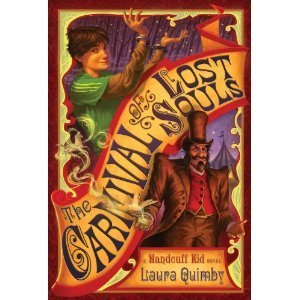
The Carnival of Lost Souls: A Handcuff Kid Novel, by Laura Quimby. Handcuffs, straitjackets, evil magician, underworld labyrinth: no problem for The Handcuff Kid!
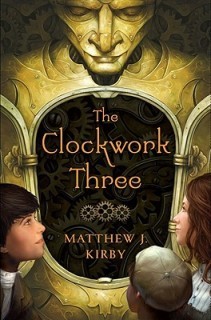
The Clockwork Three, by Matthew J. Kirby. Middle grade. Three kids find great power and overcome their fears when they come together, in this book that also features a mysterious violin, a hidden treasure, and a quest to create the perfect automaton.
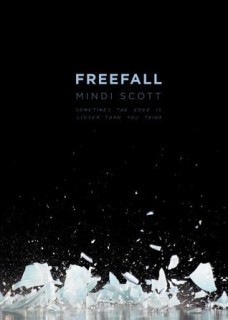
Freefall, by Mindi Scott. Young adult. A party that turns deadly, ongoing guilt, and a girl with secrets all complicate Seth McCoy's life.
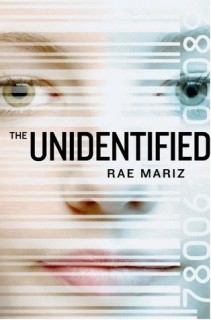
The Unidentified, by Rae Mariz. Young adult. A young girl and a rebel group called "The Unidentified" fight the overreaching corporate sponsorship and tracking that have taken over every area of life, in this dystopian novel.
November 5, 2010
End of an era
It’s no accident that he is the first person listed in the Acknowledgments page of my novel, The Secret Year. Nathan’s support has been invaluable in helping me navigate the zany world of publishing, from both the creative and business angles. And if you've ever read his blog and wondered whether he's really as great a guy as he seems, the answer is yes.
There’s a line in The Secret Year: "If you’re lucky, you should know you’re lucky." I have recognized my luck these past few years, and I have appreciated it. I’ve seen many people become disenchanted with their agents, and I’m grateful that my experience has been the opposite. I like and respect Nathan now even more than I did when I first signed with him.
As much as I would love for such a productive partnership to continue, I can’t begrudge him the chance for new adventures, the chance to travel a new path, after he’s helped to make my own dreams come true. It’s ironic that when he recently asked me if I would do a guest post for his blog on a topic of my choice, I picked the subject of seeking new challenges and reaching for your next level. I did not know then how soon things would change. (Due to the unexpected change of events, that post did not run there, but I'll run it here on my own blog.) And while Nathan is seeking new challenges and reaching for his next level, I’ll continue to seek mine.
Of course, when one era ends, another begins. One happy outcome of this bittersweet situation is that I’ll be working with the amazing Ginger Knowlton, also of Curtis Brown, and if you look at her bio, you’ll see why I’m excited about that. Already, my new journey is starting.

